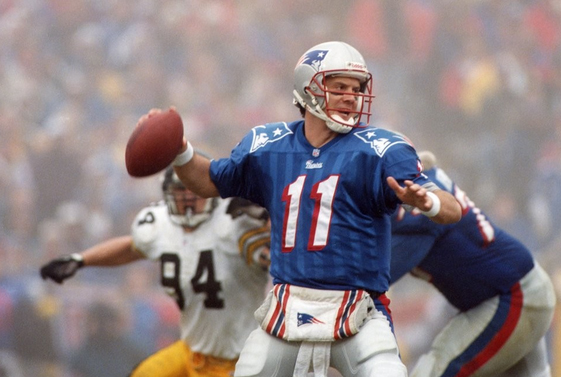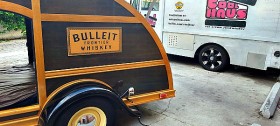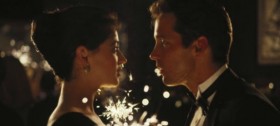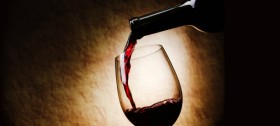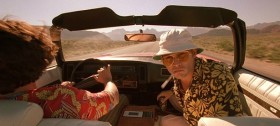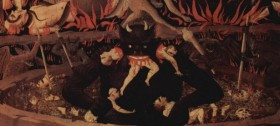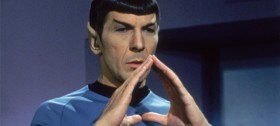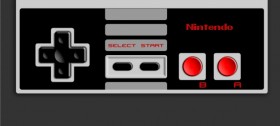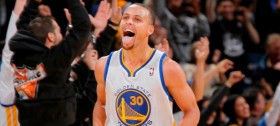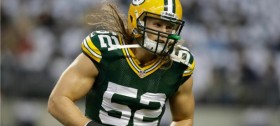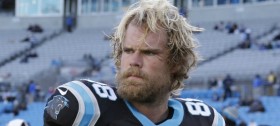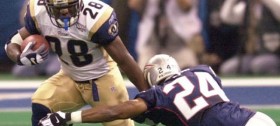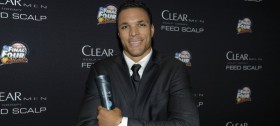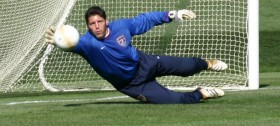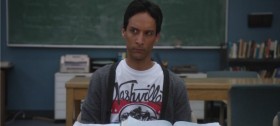Posts tagged Drew Bledsoe

MANjr’s interview with Drew Bledsoe
Drew Bledsoe is known for his great career as a quarterback in the NFL most notably for the New England Patriots. Bledsoe was the focal point of the Patriots offense which was the reason why he drafted number one overall in 1993 from Washington State University. The two time All-Pro also played for the Buffalo Bills and Dallas Cowboys.
Now retired from football Drew has pursued another career. He founded the Doubleback Winery located near Walla Walla, Washington. Along with his friend and co-founder, Chris Figgins they strive to make an outstanding cabernet sauvignon. Drew takes his new career very seriously. He looks to educate people on the fact that great wine can come from other states than just California. For more information on Doubleback click here.
Drew is also a proud father of four children. Bledsoe and his wife take a hands on approach to parenting. He and his parents created foundation called Parenting with Dignity.
I had the great pleasure to chat with Drew about his days in the NFL and how he created his wine business.
Art Eddy: Before we get into your playing days in the NFL, I first want to start off by talking about your vineyard, Doubleback Winery. What made you get involved in the wine making industry?
 Drew Bledsoe: Wine is a passion of mine and my wife as I was playing. As I started to look at life after football and what I wanted to do and how I wanted to spend my days, wine was something that had an allure for me that went in a lot of different directions. It was something that I felt I could learn about for the rest of my life and still not know everything.
Drew Bledsoe: Wine is a passion of mine and my wife as I was playing. As I started to look at life after football and what I wanted to do and how I wanted to spend my days, wine was something that had an allure for me that went in a lot of different directions. It was something that I felt I could learn about for the rest of my life and still not know everything.
I felt like it was something that would get me out of the bed in the morning and get me excited about what I was doing. When you are in the wine business you are always around interesting people, great food, and great wine. So far it has been everything we had hoped it would be. It has been really successful for us. It has been a ton of fun at the same time.
AE: Do you find it hard for people to get past the notion that in the United States only great wines come from California? 
DB: Yea, the American population in general, if you get outside the Northwest, when they think if fine red wine they think of California. They think about Napa and Sonoma. While that is challenging for us right now it also gives us a huge opportunity for growth.
Washington has continued to grow, but we got a market out there that still, in the broader market, still doesn’t grasp the quality of wine coming out of Washington state, particularly in Walla Walla. We do some tastings from time to time. There was actually one here this last weekend up in Walla Walla. It was our wines versus the best out of Napa.
Our wines stand up just fine against the very best from Napa at generally a fraction of the price. If we can get the wine in the glass and let people try it all of a sudden it is a real eye opener. This is not just another wine region. It is a wine region that is producing some amazing stuff and at generally a more reasonable price point.
AE: I know with wine you usually pair it up with a certain foods. Do you have a favorite meal to go with your wine?
DB: With our wine we strive to make a cabernet (sauvignon) that’s a little more subtle. It has a little more nuance to it. It is not so overpowering. Because of that it is a lot more versatile with what you can pair with it. We have done things like scallops. My favorite pairing right now is lamb. We have a wood fire oven here at the house. We throw some rack of lamb in the wood fired oven and that shows just amazingly with our wines.
AE: Which was a tougher challenge for you playing in the NFL or starting up your own business?
DB: There are a lot similarities really. It is highly competitive. You got to have a great team around you. You got to be excellent in every area from your production to your bottle. How it looks on the table. Your story behind it. The authentic nature of our story is a big advantage because I grew up here in Walla Walla.
If you are excellent at all of those things you can be successful which is similar to football. In football you can’t be good at just one thing. You got to be great in all phases to be really successful. The biggest difference from football to wine is if I made a decision playing football I knew instantly if it was a good decision or a bad decision. In wine it can take up to seven to ten years before you really know about the implications of the decisions you made.
AE: Now let’s talk about your great NFL career. In 1993 you were the number one overall draft pick in the NFL. Did that add more pressure for you to make sure you succeeded in the league?
DB: When you are playing the position of quarterback there is pressure on you all the time. You either love that or you don’t. I personally really enjoyed it. I enjoyed being the focal point of an organization and being the guy that had to carry the big part of the burden.
I relish that challenge of knowing that everyday an entire organization of the other side of the ball tried to devise personnel and schemes to try and shut me down. To go out and try to be successful in spite of that was a great challenge. I love that. Pressure is not necessary a negative thing. Often times it is a positive thing if you embrace it from that standpoint.
AE: You played for three very different coaches in New England with Bill Parcells, Pete Carroll, and Bill Belichick. How big of a contrast were those three coaches?
DB: It really wasn’t. The coaches that are successful share they share far more in common than people might think. If you are going to be successful you got to be attentive to all the details. You got to guide your team. You got to make sure you focus on the important parts of the game, executing consistently, eliminating distractions, and all those kinds of things.
Beyond that all you are really talking about is personality differences. Those personality differences were pretty dramatic between Parcells, Pete, and Belichick. You learn to deal with that and communicate in different ways. Parcells was loud and in your face all the time. Pete was more of a positive motivator. Bill was all business all the time. The kinds of things that you actually have to focus on to be successful they were surprisingly similar.
 AE: Speaking of threes you played for three NFL teams, the Patriots, Bills, and Cowboys. How was the transition for you to play with those three different teams?
AE: Speaking of threes you played for three NFL teams, the Patriots, Bills, and Cowboys. How was the transition for you to play with those three different teams?
DB: The first move was challenging. Going from New England where I was there for nine years where I had come pretty accustomed on how everything works and then moving to a new organization with the Bills. Once you made the move the first time it is not that big of a deal the second time.
Part of it to was from a pride standpoint it was a bit of an eye opener. When you are in there you think that you are pretty important to this organization, then you realize that you move on and the organization continues on. Once you realize that you are a cog in the machine that when your tenure is done someone is going to move in and replace you then you understand that and move on down the road. The first move was a bit of an eye opener for sure.
AE: What will you remember most about your career?
DB: There are a lot great memories. More than anything it is the relationships that you have that you look back on with the most fondness. I have developed relationships with some truly amazing people with people I played with, coaches, owners and other across the board.
In terms of certain games and memories there are some that stand out. My second year in the league when we came from behind to be the Minnesota Vikings in overtime. The year that I got hurt and Tommy played so well that I couldn’t get my job back, but I got to come in and play in the AFC Championship game against the Steelers to where I was able to help get us to the Super Bowl.
There are a lot of those memories that I look back on very fondly. The nice thing is that when you retire the negative memories fade away.
To listen to the interview click here!
Jul 1st
